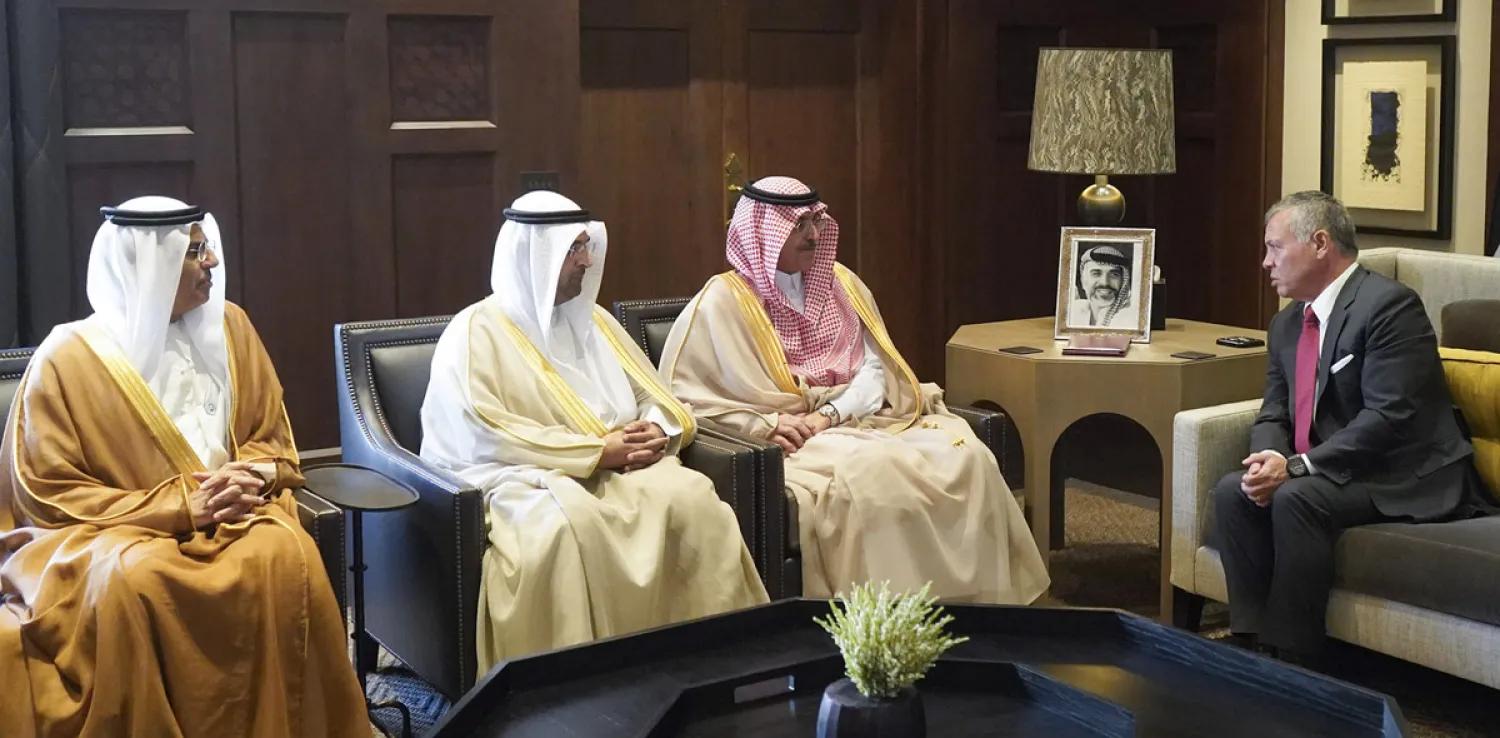Saudi Arabia, Kuwait and the United Arab Emirates placed on Thursday $1.16 billion in deposits at the Central Bank of Jordan as part of a $2.5 billion economic aid package to Amman over five years to support the budget, fund development projects, and provide credit guarantees to enable secure international financing.
The three countries pledged the aid package while Jordanian King Abdullah II received the finance ministers of Saudi Arabia, Kuwait, and the UAE, who are visiting Jordan to follow up on the outcomes of the Makkah Summit held in June to support the Kingdom’s economy.
During the meeting, King Abdullah thanked the three countries for their ongoing support for Jordan to enable it to cope with the economic burden it is shouldering as a result of regional crises.
He also affirmed the deep-rooted, brotherly ties between Jordan and these countries.
Riyadh's contribution to Amman included a grant agreement worth $250 million over five years to support the public budget to implement development projects and programs, in addition to signing a deposit agreement at the Central Bank of Jordan worth $333.3 million.
In total, the three countries pledged $1.16 billion in deposits at Central Bank, $550 million in soft financing for development projects, $200 million in credit guarantees to the World Bank to help Jordan secure soft loans and $500 million in grants to support the budget over five years for the implementation of development projects.
Kuwait has also announced plans to reschedule $300 million worth of loans for a period of 40 years.
During a meeting with the three Arab Gulf countries' finance ministers, Deputy Prime Minister and Minister of State, Rajai Muasher said the support of the brotherly countries aims to address the current economic conditions facing Jordan resulting from the instability in the region and its repercussions on the Kingdom.
For his part, Jordanian Finance Minister Ezzedine Kanakrieh said the grants to the budget will help reduce the deficit and the loans will be used for development projects, noting the deposits that will be transferred to the Central Bank of Jordan will help support the bank's foreign currencies reserves, which will reflect positively on the economy.









